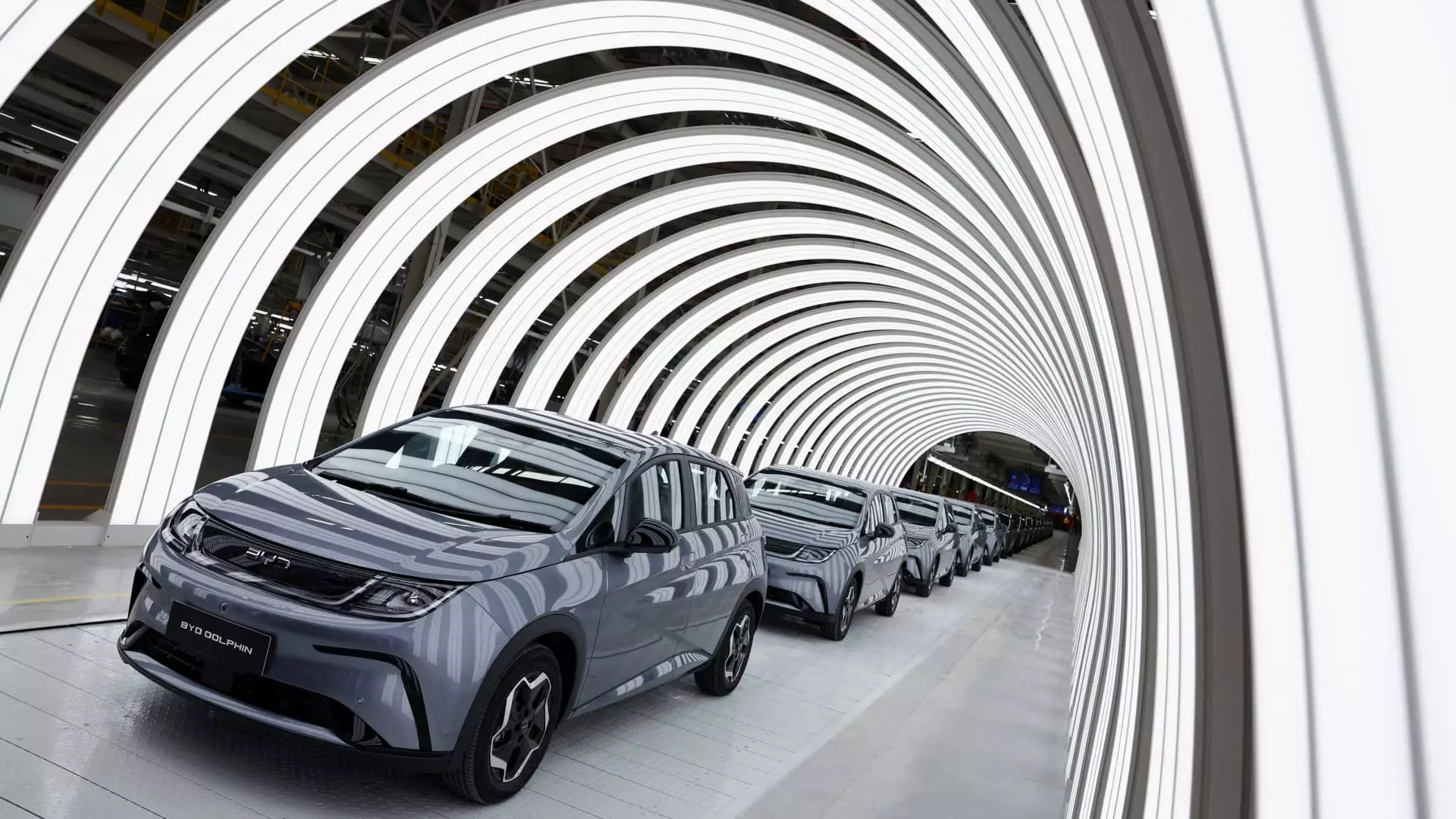With the escalating demand for electric vehicles (EVs) in global markets, BYD, the Chinese automotive powerhouse, is making substantial strides in the realm of driver-assistance systems. The company’s recent launch of a multifaceted driver-assistance system across several models—including a particularly affordable version priced below 70,000 yuan (approximately $9,600)—has sparked significant interest among automotive analysts and investors alike. As this development unfolds, the ripple effects on BYD’s supply chain and the broader automotive industry are poised to reshape the competitive landscape, especially within the burgeoning electric car market.
BYD’s aggressive push into advanced driver-assistance technology has not gone unnoticed. The automaker’s shares recently surged to an all-time high, reflecting robust investor confidence in the company’s trajectory. Analysts from Nomura have projected that suppliers associated with BYD’s new systems are likely to experience commendable growth. This outlook hinges on the notion that other automotive manufacturers will feel pressured to enhance their own smart driving capabilities to remain competitive. As these manufacturers pursue upgrades, the demand for smart driving components is expected to escalate across the automotive sector.
BYD’s success is tied closely to a network of suppliers, particularly those providing essential components for the newly introduced driver-assist systems. One notable supplier is Horizon Robotics, a major chip manufacturer that has aligned closely with BYD’s strategic objectives. Horizon Robotics has been lauded for its innovative chipsets and is positioned to benefit, according to Goldman Sachs analyst Allen Chang, who has raised revenue expectations for the company linked to its Journey 6 chipset series. This series is anticipated to significantly bolster Horizon’s revenues, with projections estimating growth from 3% to 40% over the next few years.
Another crucial player in the supply chain is Hesai Technology, a lidar sensor manufacturer that is integral to the functionality of BYD’s advanced systems. Lidar technology plays a vital role in creating three-dimensional mappings essential for accurate vehicle navigation and obstacle detection. Hesai’s involvement highlights the increasing reliance on sophisticated technologies in modern automotive design, particularly as companies like Tesla seek to navigate regulatory hurdles in the Chinese market—a landscape that remains fiercely competitive and technologically advanced.
The sophistication of BYD’s driver-assist system, known as “Dipilot,” derives from its modular design, which utilizes various components tailored to different price points. Specifically, the basic version employs Horizon Robotics’ chipsets in conjunction with Nvidia’s Orin chips, while premium versions leverage additional Nvidia technology for enhanced performance. This differentiation is crucial in catering to diverse consumer segments while maximizing profitability, as more advanced features typically command higher prices.
The implications of this multifaceted approach are profound. Analysts predict that over 3 million BYD vehicles are set to integrate advanced driver-assistance functions this year alone. Since these systems incur higher costs than standard automobile features, the revenue potential for BYD and its suppliers presents an exciting growth narrative.
As automotive manufacturers amplify their investments in smart driving technologies, a domino effect is likely to occur. Smaller suppliers in the autonomous driving ecosystem could see increased demand for components and software solutions. As competition intensifies, innovations in software development and hardware integration are imperative for companies seeking to establish a foothold in this rapidly evolving space.
Moreover, government policies promoting technological self-sufficiency in China further bolster the momentum behind domestic automotive technologies. Companies such as BYD are becoming not merely participants but influential leaders in a global market reshaping itself around electric and smart vehicles. As competition grows—evidenced by the sharp decline in Tesla’s share price following BYD’s announcements—the stakes are high for all players involved.
BYD’s serious commitment to developing advanced driver-assistance systems stands as a significant milestone not only for the company but also for the larger automotive industry. As the demand for smart driving functionalities escalates, BYD and its suppliers are positioned to capitalize on this trend, marking a new era of technological advancement in electric vehicles. As automotive manufacturers race to equip their vehicles with sophisticated driver-assistance technologies, it is clear that the landscape of the EV market is primed for transformation, driven by collaboration and innovation.

